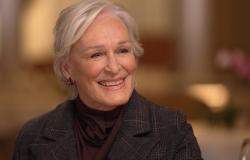Immediately following the 2024 election, as people realized Donald Trump—whose Supreme Court nominees struck down Affirmative Action, who defied the Fair Housing Act in his own business dealings and has spoken contemptuously about the legislative victories of the Civil Rights Movement—would be inaugurated on Martin Luther King Day, many declared they would not watch the ceremony in protest. Many more, particularly Black women, spoke of “sitting out” in the years to come, no longer engaging with national politics or the vectors of debate and strife and, essentially, minding our own.
Dr. Bernice King, Martin Luther King’s youngest child and the current CEO of the King Center, had a different message. She urged people to honor Dr. King on the morning of the 20th, encouraging them to view the commemorative services at the King Center, and to pay attention to the political messages of the inauguration in the afternoon.
I spoke with King about honoring the legacy of her father in the midst of an intense backlash to Black political and cultural gains, and how to move forward in the spirit of her father’s work. I opened by asking her about the desire many of us have expressed to take a step back from the work of progress.
I look at it like grief. You allow space and a place for people to process what they feel because of what they have lost. People feel like they lost an important election. They feel like they spent a lot of energy and have been at it for years, and it’s exhausting. It’s exasperating. You get that. There may be some people who don’t have the stamina to keep going. But in a movement, the whole cannot stop. Things are still moving and we have to always be persistent and diligent and responsive. I think about my mother’s words, where she says “struggle is a never ending process.” We have to understand it never ends.
What makes this generation feel like we should have the greatest benefits and not have to equally sacrifice as some of our ancestors did? Maybe not in the same way, maybe not with the same things, but each generation is called to the freedom struggle. So struggle is a never ending process. Freedom is never really won. You earn it and win it in every generation.
Something my father said: “One of the tragedies still of human history is that the children of darkness are often more zealous and determined than the children of light.”And so if we remain detached and inactive, indifferent, passive on the sidelines, then we give more leeway to those forces of darkness to embed themselves further in our society.
My father may have lived in a certain period of time but he also left us with teachings that are applicable today. There are things that he didn’t get to finish in his lifetime because his life was taken from him. We have to continue the momentum around those issues of freedom, justice, democracy, and equality. And so this day and the service are like a launching point every year, into a new year. It is about embracing those teachings, in particular the non-violence teachings that he left as a means to bring about personal, cultural and social transformation.
I’m kind of like John the Baptist in the Bible. John the Baptist had one sermon; it was repent. I have a singular focus which is to get people to really take heed of what my father urged us to do in 1964 when he delivered his Nobel Peace Prize lecture. He said, “I suggest that the philosophy and strategy of nonviolence immediately”—keyword immediately—“become a subject of study and serious experimentation in every field of human conflict by no means excluding relations between nations.” And that immediacy is still with us. Over the last several years, we’ve seen our elected officials and our Supreme Court trying to undermine some of the accomplishments that my father made with the Civil Rights Act and the Voting Rights Act and the Fair Housing Act. We’ve got to be more vigilant and act with a sense of urgency.
-We have the power of nonviolent resistance. And we have to have the creativity of what nonviolence can bring to bear, that it can create. Nonviolence can create justice. But it has to be embedded in you, it has to be a part of you and it’s something that you have to exercise on a daily basis. Non-violence is a love-centered way of thinking, speaking, acting, and engaging that leads to personal, cultural, and societal transformation. It’s something that I hope more and more people will begin to try to align with. That’s the key word, align. When people who operate from that vein collectively work together, it becomes combustible. That’s what happened during the Civil Rights Movement. Extraordinary things, unusual things, things that seemed impossible became possible.
So, we honor people who might be in that place of disengagement, but you also have to ensure that there are enough of us who are always engaged in the process while allowing the others to take whatever time they need. Because evil and darkness is always operating. We need light to shine forth consistently and to be just as vigilant and diligent as those who want to use darkness.
It’s important that we are not integrated into a value system but that we’re integrated into society. In the Black community, there’s an argument where people say, ‘integration was bad for us because we lost our businesses, we lost the power of keeping Black money in the Black community.’ Integration didn’t do that. We decided to shift our values. We decided not to continue to circulate the money. We lost the value of staying united. When my dad wrote Where do we go from here? which I encourage people to really read, he talked about, “Look, we’re not trying to integrate our value system, we are trying to integrate into society and what society should offer all groups of people in common but we still will maintain our certain values, our spiritual values, our family values, our communal values, all of those things.”
There are things that all of us need access to. We need access to clean water. We need access to affordable housing. We need access to health care that does not bankrupt us. We need clean energy. And because we’re we’re we are interconnected, we’re interrelated and we’re interdependent in this world we live in today.
I have a sign over my bed. It says Give It to God and Go to Sleep. I know that I do everything I can within my own intellect, my own power, collectively with whomever else, and at some point I have to respect that there is a God of this universe who everything in this universe works together with for our good. It does not mean that it always feels good. It may not look good. It may not mean that there may not be casualties, but at the end of the day, when you think about us collectively past our own particular set of circumstances, humanity throughout time has always come through difficult, hard, challenging, dark situations. And we are part of that humanity.
Our ancestors did so much. They brought us to this place. So now we have to continue. That’s what my mother was talking about. We’ve got to continue that force forward, so that the next generation can do their part. I think about the past ancestors and I think about these young people that I have a responsibility to to pave the way for. That’s what keeps me grounded and centered with my faith and recognizing who I am between two generations.
This interview has been edited for length and clarity.






